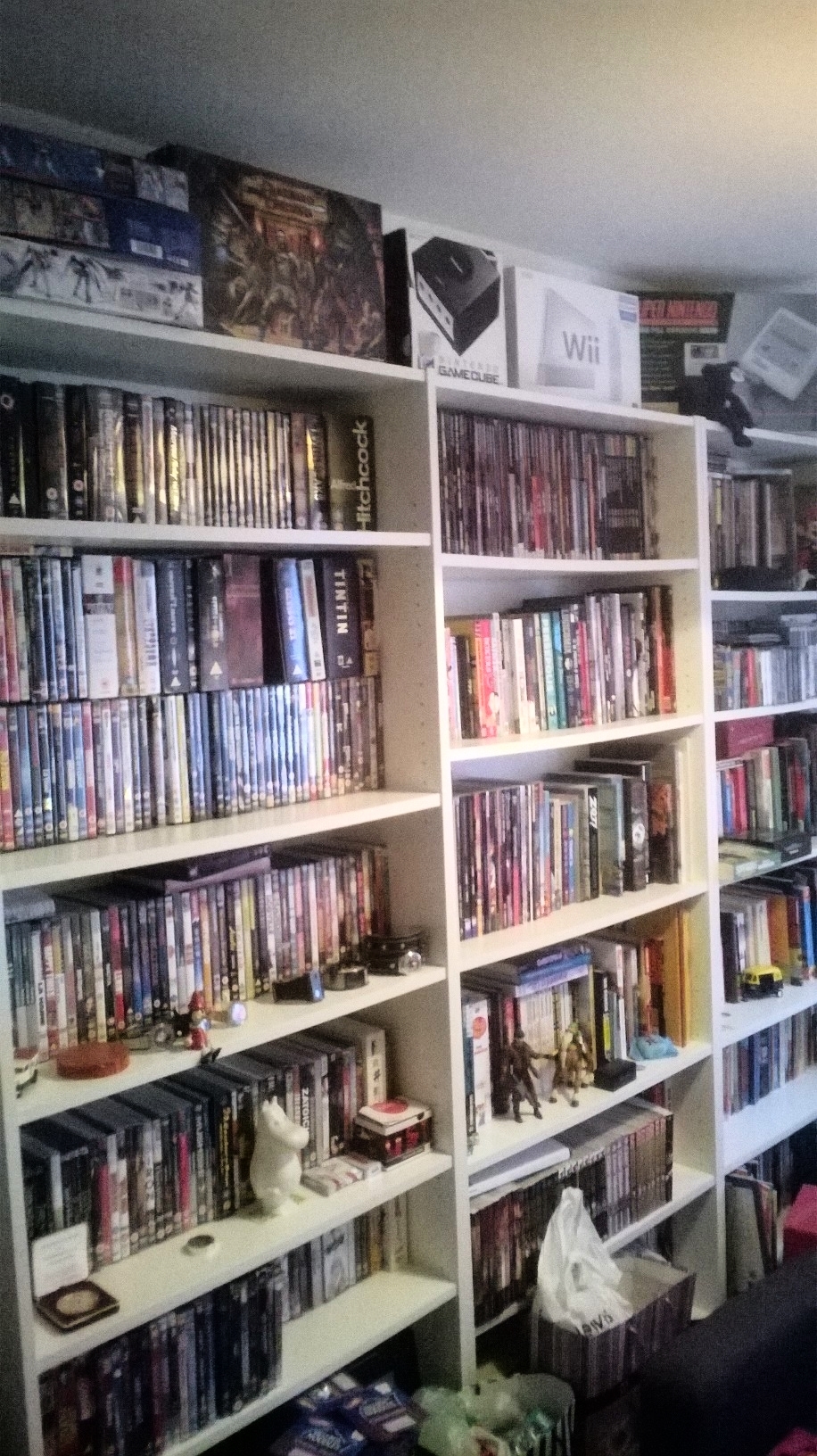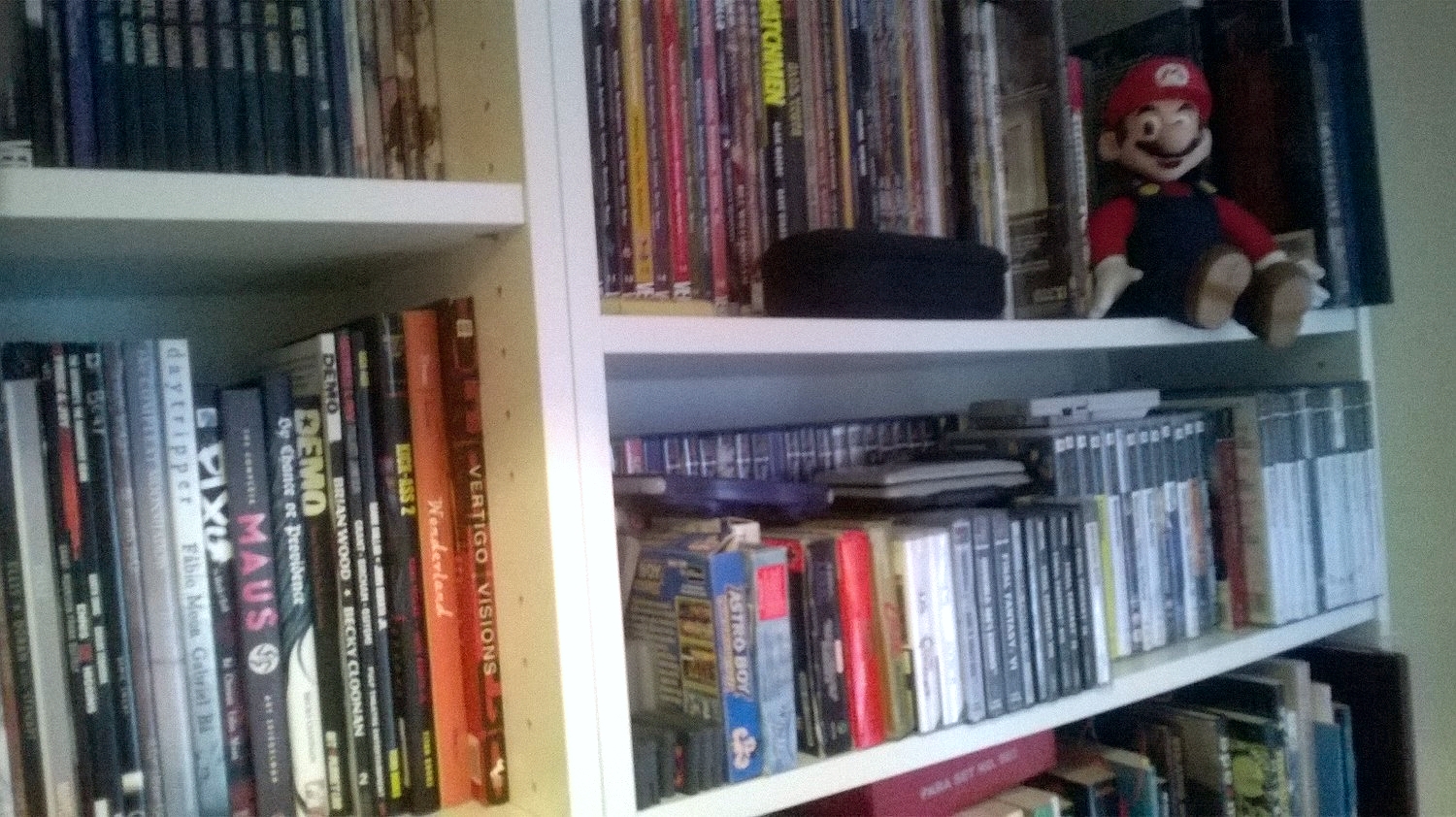Back in the mid to late 90s, I heard the hype surrounding a survival horror RPG game called Parasite Eve which was out on the PlayStation. I knew of the game as it was reviewed in various game magazines and the horror story angle from Hiranobu Sakaguchi, creator of the Final Fantasy series, had me intrigued. I never got a chance to play it as there was never a UK release due to rights reasons but weirdly enough did play the two sequels, Parasite Eve 2 and The Third Birthday which did get a release in these territories.
It's always been a regret that I never experienced the first game at the time and, whilst there are ways various to play the English translation now, I think it might be a tough hang to go back to it now, what with its tank controls and old skool pacing. That didn't stop me from buying a Japanese copy from Akihabara when I went to Japan in 2013 though- I just wanted a copy in any form!
So, all these years later, I've decided to give the book a try, as the game references events that happened in the acclaimed book by author Hideaki Sena. This 1995 horror story has many sci-fi elements in it and on release it won lots of plaudits and garnered critical acclaim. The 90s were an extraordinarily successful time for Japanese pop culture in the West as manga and anime broke into the mainstream and Japanese horror and psychological thrillers worked their way into Hollywood with remakes of Dark Water, The Ring, The Grudge etc all proving quite successful. Parasite Eve was a part of this wave but we had to wait until 2005 to get an English translation of the Parasite Eve novel- there has never a Hollywood movie however. Acquiring a physical copy of the book is expensive, often a few hundred pounds for a paperback, so I bought it on Kindle for £7.99. So, has it been worth the wait?
The story concerns Toshiaki Nagishima, a biology and pharmaceutical researcher and his wife, Kiyomi. When she wraps her car around a telephone pole after having a weirdly prescient dream, she is declared 'brain dead' but Nagishima can't let her go. He donates his wife's kidney to a young girl, Mariko, but keeps the liver to carry out his groundbreaking research on mitochondria. What follows is a tale of body possession as the ever evolving sentient mitochondria takes control of the new hosts body and seeks to become the dominant biological entity on Earth by reproducing and creating a child.
The first 2/3rds of the story is pretty straightforward with lots of medical and pharmaceutical technobable which talked about the beauracracy and systems in place when designating kidney transplantation. It's not so much flavour more than minutaia explaining the process in LOTS of detail, which have been painstakingly researched (as supported by the extensive bibliography).
Interspersed within this we get the stories of Toshiaki and Kiyomi, their childhoods and then their meeting at college and falling in love. However, the pace of the story sags here as whole chapters are dedicated to the scientific process without much else happening. Also, the burgeoning relationship between the pair felt dry as Toshiaki comes across as a boring nerd who fixate on mitochondria to the nth degree. He's not a likable protagonist either. I felt that a lot could have been cut from the first 200 pages without any adverse effect on the story. A short novella rather than the 300 page book is what was required here as the final third is actually very exciting and picks up somewhat as it goes hard into Lynchian weirdness and Chronenbergian body horror. It gets a bit gross and gruesome towards the final act but that is where the excitement is.
Overall, the book is a slow and languid read until the thrilling final third. I can't recommend the book though as it is great payoff from a very slow start.



